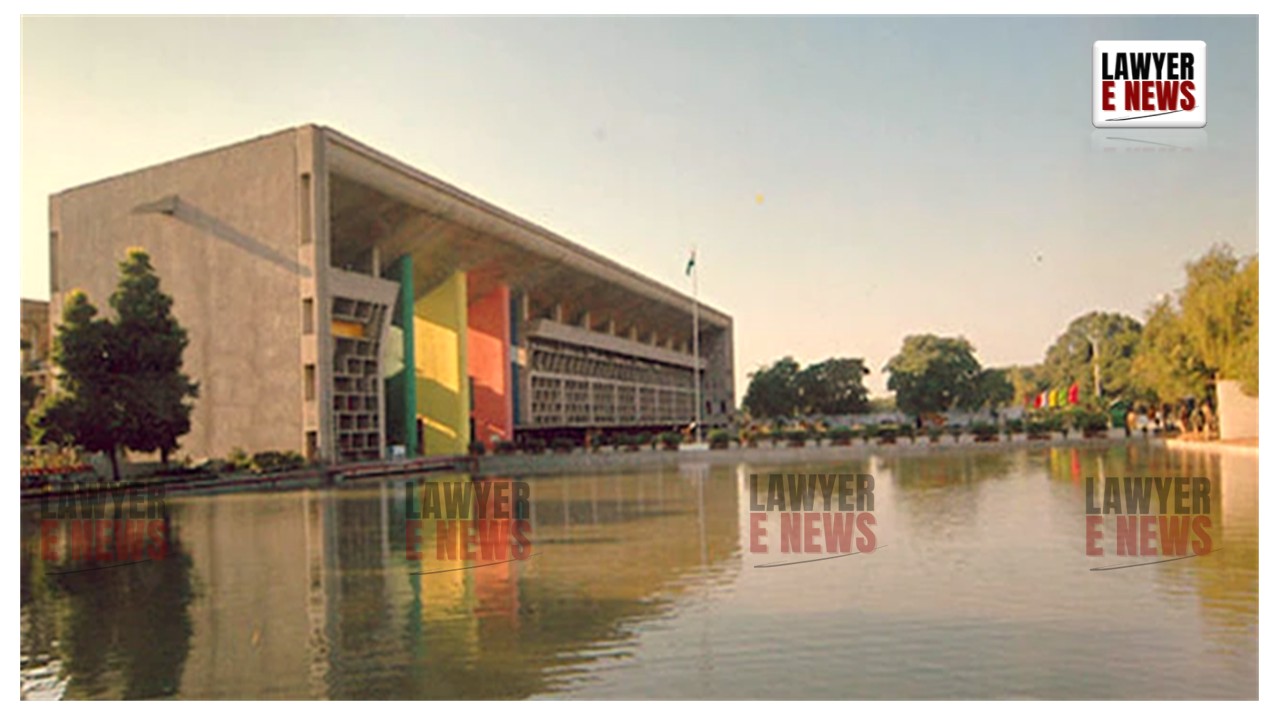-
by Admin
18 February 2026 2:25 PM



“Any amendment which alters the qualifying standard in examinations cannot be applied to students who undertook the exam before its enactment—legal certainty must prevail”, - In a significant judgment Punjab & Haryana High Court in Jashandeep Kaur & Others v. Union of India & Others firmly held that the National Medical Commission’s revised CBME Guidelines dated 01.08.2023, along with the corrigendum dated 01.09.2023, which lowered the aggregate pass percentage for MBBS examinations, could not be applied retrospectively to students who had already taken their exams before the amendments came into force.
The Court ruled that the amendments were substantive, not clarificatory, and hence prospective in nature, thereby upholding the principle that vested academic rights cannot be defeated by retroactive policy changes.
“Amendments That Alter Standards Are Not Mere Clarifications”
Rejecting the petitioners' plea to revise their failed results based on the reduced passing threshold notified post-examination, the High Court observed: “The 01.09.2023 corrigendum cannot be considered a clarification of the earlier guidelines; it materially and fundamentally alters the qualifying standard… such change is substantive and cannot operate retrospectively.”
The Court reiterated the settled law that substantive amendments affecting rights or obligations cannot be retroactively applied, citing Commissioner of Income Tax v. Vatika Township (P) Ltd. where the Supreme Court held: “Legislation which creates new obligations or takes away vested rights is presumed to be prospective unless the legislature expressly states otherwise.”
Applying this to academic regulations, the Court ruled: “A student’s right to evaluation crystallizes when the examination is held, not when the results are declared… applying a later, relaxed standard to an earlier examination would defeat the sanctity of that process.”
“Legal Certainty in Academic Evaluation Cannot Be Compromised”
The Court emphasized the doctrine of legal certainty, particularly in educational systems, stating: “A system of education governed by rule of law cannot afford to treat students differently based on post-exam notifications. The evaluative norms in force at the time of examination must apply.”
While the petitioners argued that the corrigendum merely clarified the earlier CBME guidelines dated 01.08.2023, the Court noted that the language of the corrigendum introduced a new standard—reducing the minimum aggregate required to pass from 50% to 40% in certain cases, which amounted to a substantive departure: “No clarification can operate as a legislative tool to undo a statutory or regulatory scheme retrospectively—more so when it alters the outcome of examinations already undertaken.”
“Equity Cannot Supplant Express Law”
In response to submissions invoking equity, fairness, and the fact that the results were declared after the amendment date, the Court responded unequivocally: “Equity follows the law. Where the rule expressly states its date of coming into force, fairness cannot be used as a tool to subvert settled standards.”
It added: “The sanctity of examinations must be preserved; allowing retrospective alteration would create a cascading effect of re-evaluation and administrative chaos.”
The Court held that once a student appears in an examination, their evaluative rights are governed strictly by the norms prevalent on that date.
Dismissing a batch of fifteen writ petitions, the Punjab & Haryana High Court held that the 01.09.2023 corrigendum to the NMC’s CBME Guidelines was substantive and prospective, and therefore not applicable to students who appeared in the June/July 2023 supplementary MBBS examinations. The judgment reaffirms the foundational legal principle that rules altering rights must operate prospectively, and underscores the Court’s commitment to maintaining stability and predictability in academic governance.
Date of Decision: May 6, 2025
